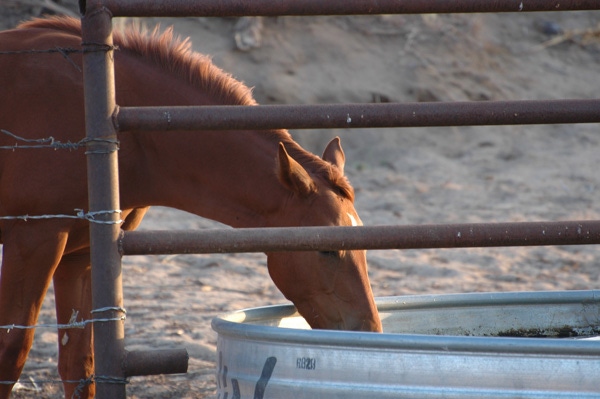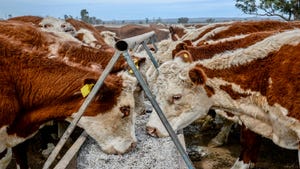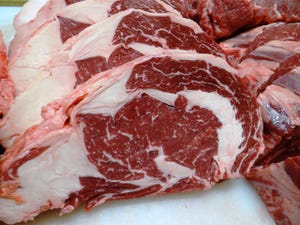Leading the horse to water; it’s crucial that it drinks plenty
In hot weather, increased water consumption is crucial to horse health.
June 26, 2018

Source: American Quarter Horse Association
Seemingly overnight, much of the nation went from a cool spring to a hot summer. That has implications for horse health, not the least of which is making sure plenty of freshwater is available.
That’s because for horses, and cattle as well, water is the most important nutrient, especially in hot weather. Without it, horses die within a few days, whereas they may be able to go weeks without food.
A horse's body
An adult horse's body is composed of roughly 70% water, which equates to 770 pounds or 96 gallons of water for the average 1,100-pound horse. A horse's nutritional water requirements are influenced by the horse's body condition; the amount, type and quality of feed consumed; environmental conditions; and the level of activity or work the horse is doing.
The type, quality and amount of feed consumed by a horse has a tremendous impact on the amount of water that horse must drink. As a general rule, water intake is proportional to dry-matter intake, but the composition and digestibility of the feed is also a factor. Horses consuming all-hay diets drink more water.
In a University of Kentucky equine research study, horses fed all-forage diets ate 19% more dry matter than those fed a mixed grain-hay diet and drank 26% more water. The physical form of forages also affects fecal water loss and water consumption.
In another study, horses fed long-stem alfalfa had significantly wetter feces and drank more water than when they were fed an identical amount of alfalfa in pelleted form. Horses on good-quality spring and summer pastures will drink less water compared to horses on hay and grain.
Good-quality pasture forage can be 65-80% water, while hay might contain only 8-10% or less. That is why idle horses may actually consume less drinking water in the summer than in the winter when they are stalled and on a hay-based diet. Their total water intakes might be identical during both seasons but from different sources.
Other factors
Other factors of the diet, including salt and protein content, also affect the horse's water consumption. We all know that salt consumption increases thirst, but feed protein intake above the horse's requirement also increases water intake and urinary output, as the horse voids excess nitrogen via urine.
Ambient temperature affects water intake, and horses typically drink less water in cold weather, while heat and humidity increase their water requirements. In addition to temperature and humidity, duration and intensity of work can also affect water intake. Depending on the conditions in which a horse is exercised, water intake can increase to as high as 30 gallons per day.
When it comes to water, it is important to remember that all horses need clean, good-quality water available at all times. Large, outdoor water troughs should be cleaned at least every couple of weeks to remove debris and algae. If a horse is stalled, the water buckets should be emptied and rinsed daily of feed and other materials. When possible on hot days, provide your horses cool, fresh water, as they drink better if the water temperature is 45-65 degrees F
You May Also Like



